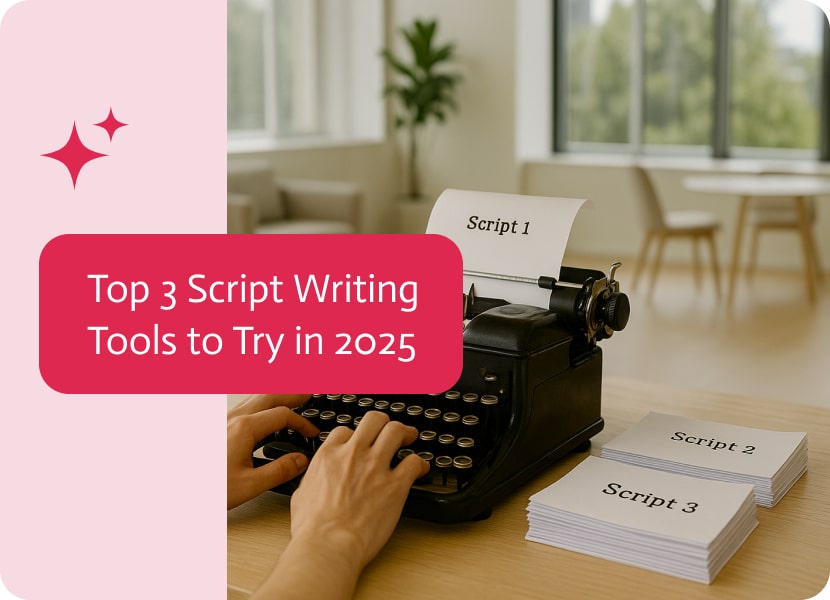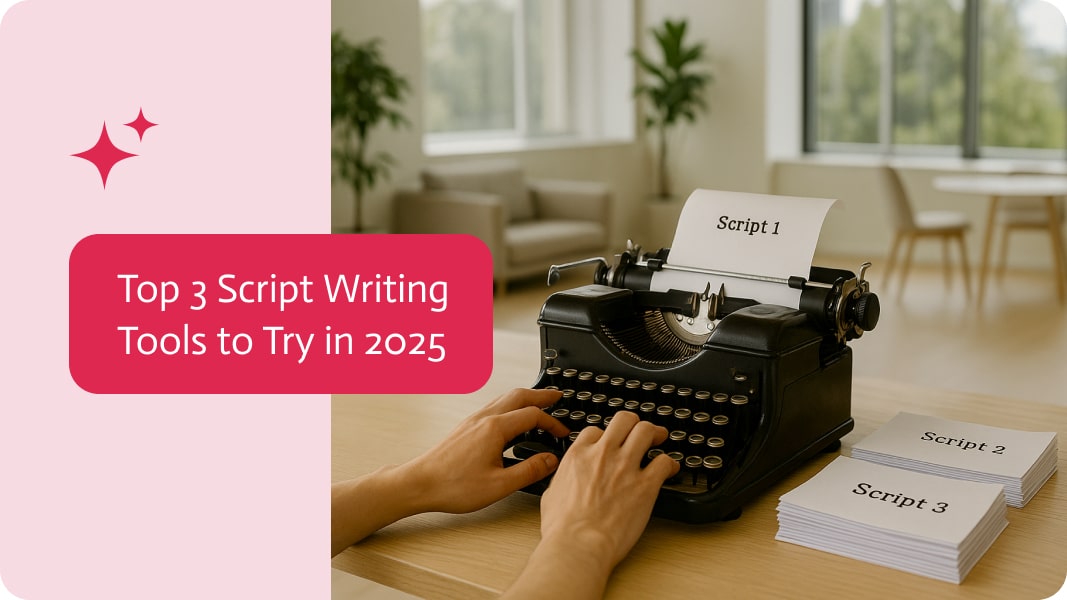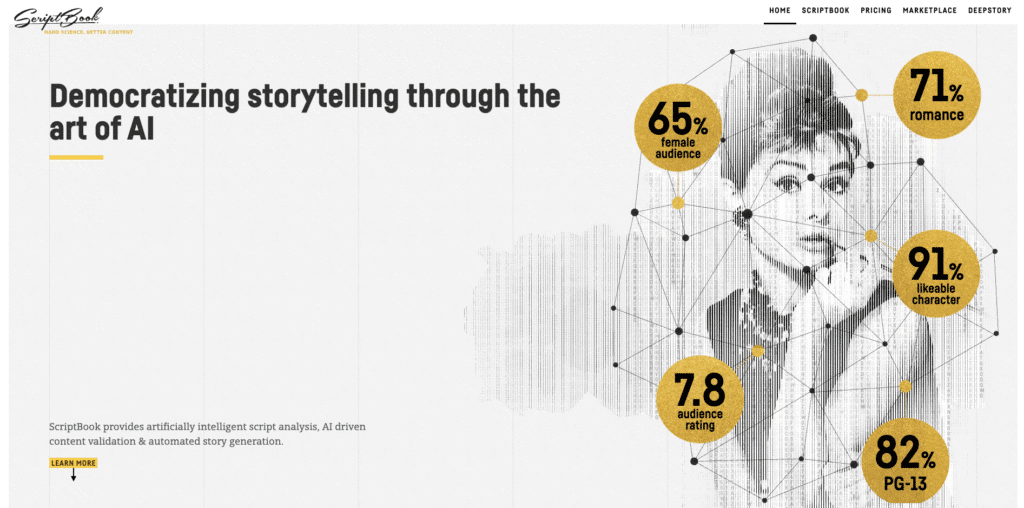

Top 3 Script Writing Tools to Try in 2025
Whether you’re an aspiring screenwriter, an actor trying to write your own short, or a startup founder creating pitch videos, writing scripts is where creativity meets structure. But let’s be honest—maintaining that creative flow isn’t easy when you’re stuck staring at a blank page or trying to format dialogue in Word.
Scriptwriting is no longer just for Hollywood insiders. With the rise of content creators, indie filmmakers, and solo entrepreneurs, more people than ever need scripts that work—not just in theory, but in production. That’s where AI comes in.
In this post, we’re highlighting three scriptwriting tools built to help you go from scattered ideas to ready-to-shoot scripts—without killing your creative momentum.
Script writing tools
1. Sudowrite

Best for: Creative writers, indie filmmakers, and actors developing character-driven content.
Sudowrite is more than just an AI writing assistant—it’s built with storytelling in mind. From brainstorming character arcs to generating believable dialogue, Sudowrite behaves like your creative co-pilot.
Its “Story Engine” lets you structure scripts by acts and beats, while its “Describe” tool can help you paint scenes more vividly. For actors who are also writers, this tool is a goldmine: feed it your scene and it can flesh out tone, setting, and even subtext.
Why it works:
- Tailored for storytelling, not just general writing
- Generates story beats, dialogue, and emotional tone
- Helps you push through creative blocks with prompts and rewrites
What it lacks:
- It’s not designed specifically for script formatting (like screenplay structure)
- No collaboration or production tools
2. ScriptBook

Best for: Startup founders and content creators pitching ideas or testing story viability.
ScriptBook takes your script and uses AI to analyze its commercial potential—think of it as your script’s first set of studio notes, powered by data. While it doesn’t generate scripts from scratch, it’s powerful for early-stage validation, especially for creators looking to get investor buy-in or audience insights.
It can predict genre alignment, target audience, character likability, and even box office performance.
Why it works:
- Great for validating story ideas before production
- Ideal for startups or solo creators with tight budgets
- Gives analytical feedback that’s usually hard to access without a studio
What it lacks:
3. Squibler

Best for: Indie filmmakers, screenwriters, and YouTubers who write scene-by-scene.
Squibler isn’t just another AI that spits out generic paragraphs—it’s a dedicated scriptwriting platform designed for creators who want control over pacing, structure, and formatting. With a clean screenplay mode and AI-assisted prompts, Squibler helps you go from rough idea to polished script fast.
Whether you’re building a YouTube series, an indie short, or a podcast drama, Squibler’s scene-based writing approach makes it feel more like a creative assistant than a content robot. You can create character arcs, set dialogue tone, and flesh out narratives—all within a professional scriptwriting layout.
Why it works:
- Built for storytelling, not just content
- Scene-by-scene editing feels natural for creatives
- Helps with character development and pacing
What it lacks:
- Less suitable for marketers or high-volume content teams
- Can require more hands-on input to guide the AI
Where iPaaS Comes In (And Why It Matters)
Once your script is ready, it’s often just the beginning. Whether you’re feeding it into a video generator, adding voiceover narration, or pushing it to an editing workflow—automation becomes key. That’s where an iPaaS like Noca AI fits in.
Unlike traditional automation platforms built for engineers, Noca AI is built for creators. You can connect your scriptwriting tools to video editors, AI voice tools, or collaborative review platforms—all using natural language prompts. No technical know-how required.
It’s not about replacing your creative process. It’s about removing the friction that kills it.
Final Thoughts
AI won’t write your masterpiece for you. But it will help you show up with fresh ideas, speed up your workflow, and move from “maybe” to “done.”
Whether you’re acting, pitching, or producing your next short film, these tools are here to keep your creative energy alive—and actually get your script across the finish line.


